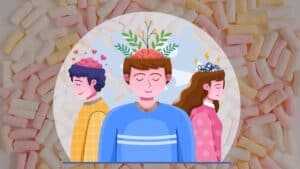
Striving to be a pleasant person is both natural and lovely. In a cruel and thoughtless world, nice people make a point of being kind, compassionate, and generous.
They never want someone to lose sleep or feel dejected. To keep others from crying, they will go to tremendous measures. It sounds quite beautiful. Nevertheless, it seems impossibly difficult to live a completely pleasant existence.
Sometimes, We Need To Take Tough Choices
Every one of us will eventually be required to make judgments that, even if they safeguard things we deeply value, will cause controversy, cause discontent, and possibly even make us the target of hatred (at least temporarily) from some quarters.
For instance, we might have to admit to a romantic partner that despite our intense love for them, we don’t see ourselves staying together for very long. Alternatively, we might have to inform a youngster that it is time for bed and that no more stories are permitted. Or we might have to tell a teammate that we don’t think they’ll fit in and that it would be better for them to explore for chances elsewhere.
Such circumstances can be excruciating for devoted ‘good’ people. There are strong pressures to postpone or avoid the crucial moment. While always agreeing and grinning, the ‘nice’ nonetheless harbour a secret hope that they might maintain friendships with everyone. Their unique sensitivity has frequently been cultivated through upbringings, in which the repercussions of being truthful and straightforward were very challenging.
Be Nice Or Be Authentic
But being truly pleasant requires more than just emollience and unwavering agreement. It entails communicating one’s values to others and upholding them despite the occasional expense of public backlash. It entails bearing the responsibility of stating our position and spoiling someone else’s afternoon once a month in order to protect both our long-term future and theirs.
It entails acknowledging that trade-offs may need to be made between efficacy and camaraderie, as well as loyalty and authenticity. As adults, we need to develop something more valuable than popularity – a character.






































